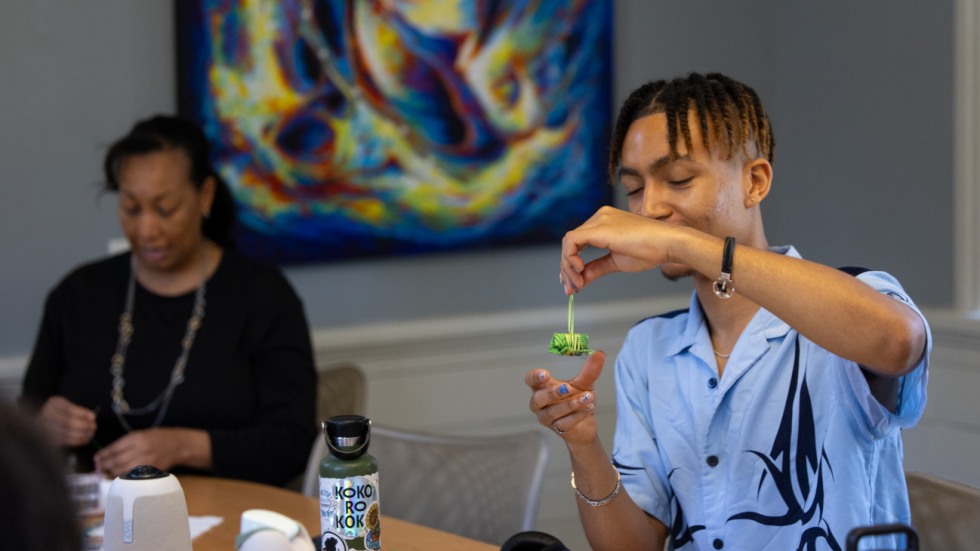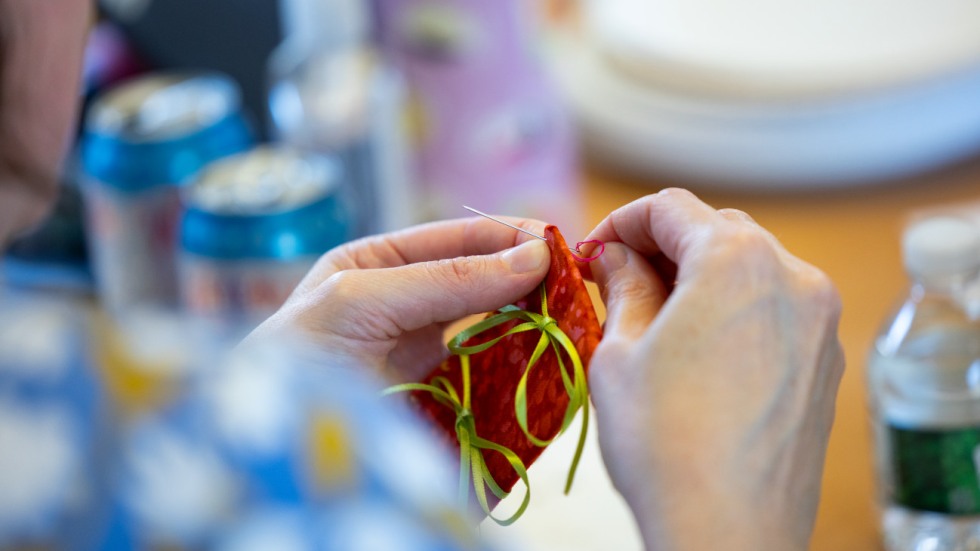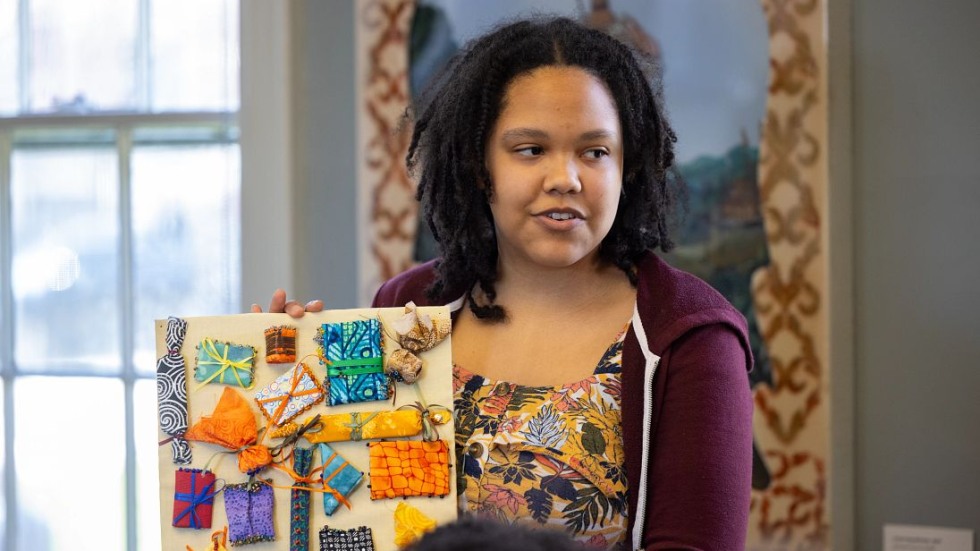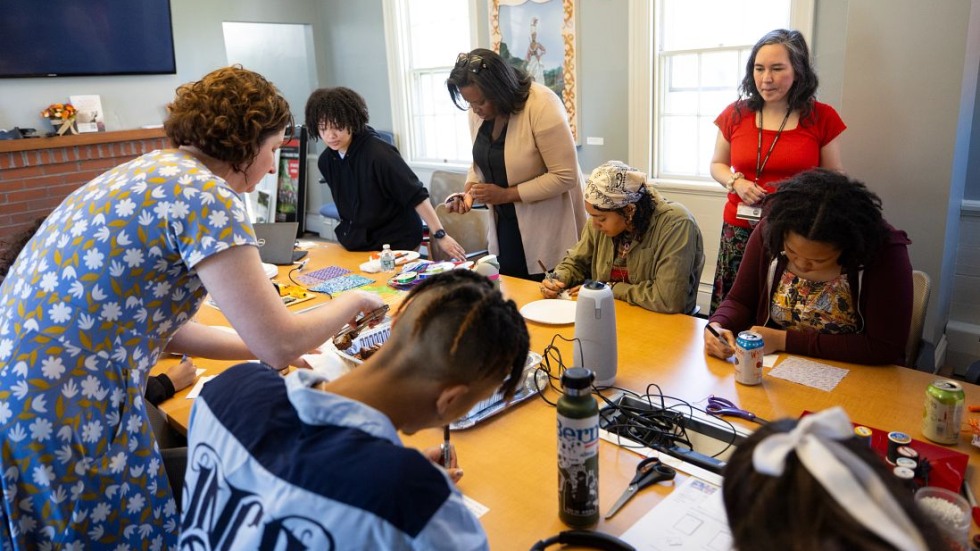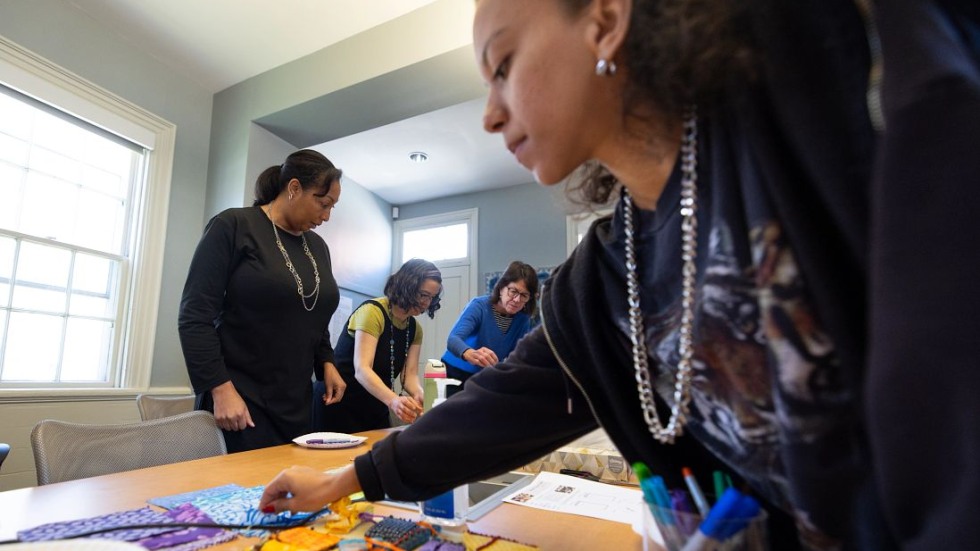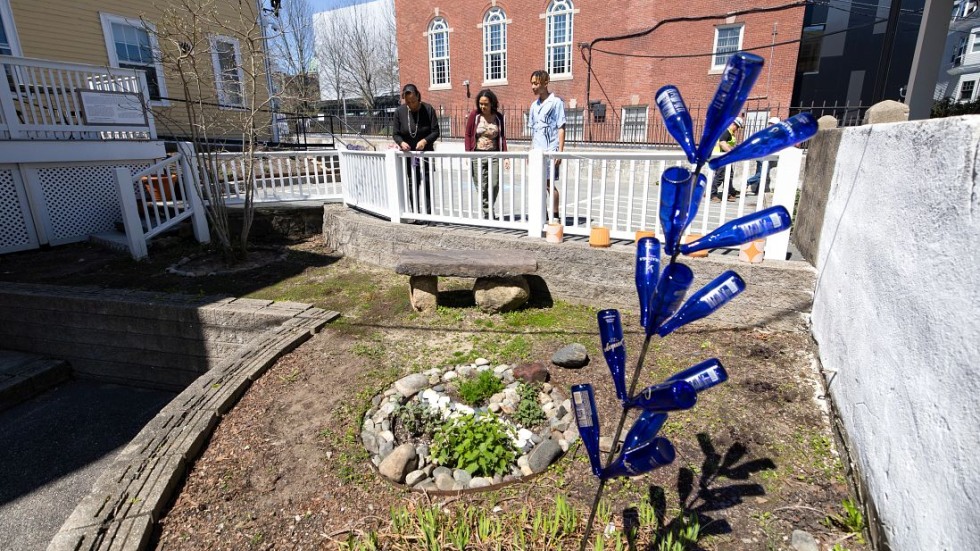PROVIDENCE, R.I. [Brown University] — What hopes and intentions might flourish on campus and beyond in the months to come?
A small group of students, staff, faculty and community members convened on a sunny spring day at Brown’s Ruth J. Simmons Center for the Study of Slavery and Justice to make colorful beaded ornaments with their positive messages written inside to hang in the center’s Symbolic Slave Garden. The space honors the outdoor sanctuaries created by enslaved people in the small spaces beside cabins and huts on plantations, forests, swamps and gullies.
Workshop participants created the amulets by writing their wishes on paper, wrapping them in pieces of printed fabric and decorating them using ribbons and beads. They hung the works of art in the garden, where — as long as nature cooperates — they will hang for the next year.
“We thought this would be a great way for people to have a personal connection to the garden,” said Brown junior Allyssa Foster, who is one of the students who maintains the garden and helped organize the event, held on Monday, April 15. “That is the kind of energy that we want to have in the garden, which is the community sort of healing you.”
